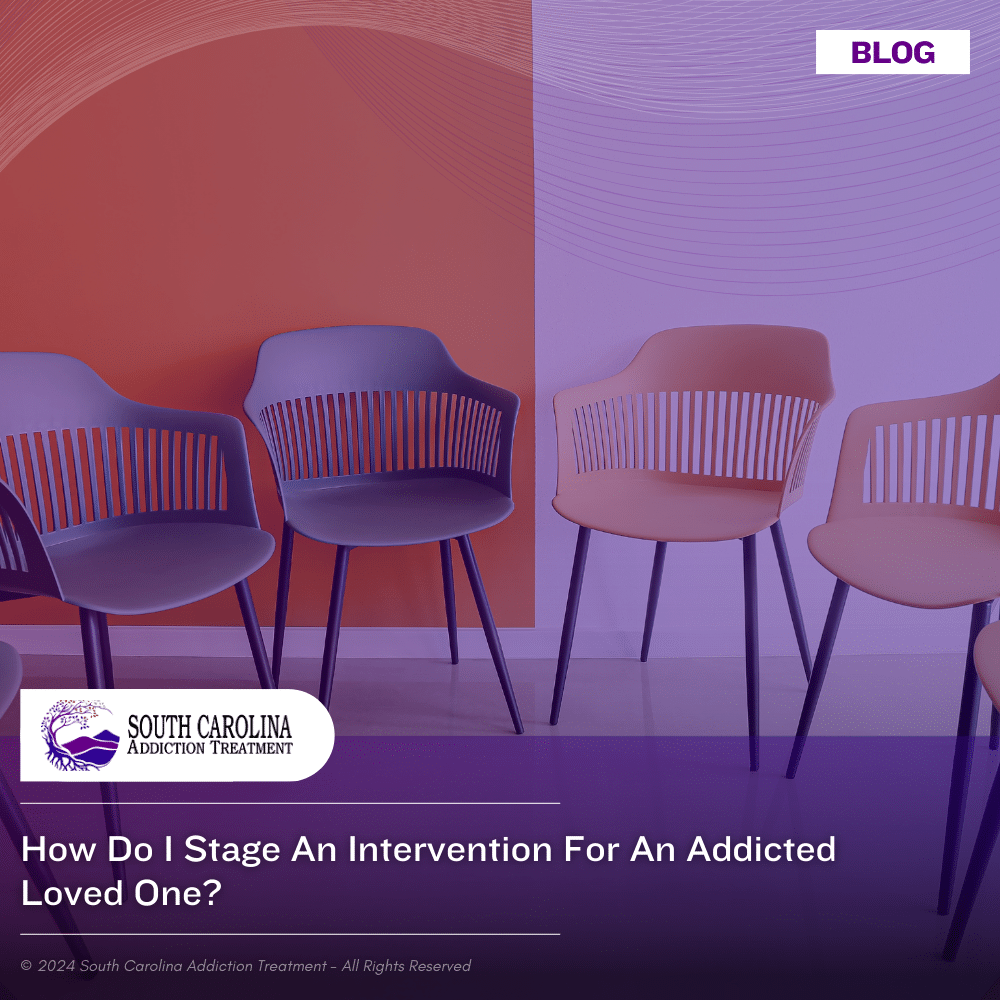How Do I Stage an Intervention for an Addicted Loved One?

Medically Verified: 2/1/24
Medical Reviewer
Chief Editor

All of the information on this page has been reviewed and verified by a certified addiction professional.
If you know and love someone who lives with addiction, you understand the frustration, guilt, and anger that can accompany this condition. Without treatment, addiction can turn into a significant problem. It can severely damage a person’s mental and physical health. It puts considerable strain on their relationships and can lead to life-altering damage to their financial and social health. In some cases, addiction can result in legal problems that can change a person’s life for years.
Watching someone you love struggle with their addiction can make you feel helpless, even when you are desperate to offer some kind of help. Many people find that taking the time and staging an addiction intervention gives them the chance to reach their loved ones and get their message across.
Some people may be familiar with the idea of an intervention from a popular reality TV show about the process. Generally, a drug and alcohol intervention is a planned event with the goal of getting a person to agree to start addiction treatment. It involves a person’s loved ones explaining how the addiction has affected them. An effective intervention is calm, loving, and persuasive.
But how do you know when it is time to stage an intervention? Learn more about when and how to host an intervention. Contact the South Carolina Addiction Treatment Staff today if you or a loved one needs treatment or support.
What Happens During a Drug and Alcohol Intervention?
Family members and friends gather to express concern about their loved one’s addiction during an intervention and offer support.
Planning an intervention can help families get on the same page about their loved one’s addiction and help them begin healing together. In some cases, the work families do to prepare to host an intervention is nearly as important as what happens during an intervention. When families work together to address their loved one’s addiction, they may begin to take steps that improve their communication and create a healthier family environment.
An intervention is considered a form of positive peer pressure. The goal of an addiction intervention is to convince an addicted person to start treatment, but it is also a powerful show of support. Having a person’s loved ones gathered together to express love and concern can sometimes break through the anger or denial common in addiction.
When is the Right Time to Stage an Intervention?
Recognizing the symptoms of addiction is the first step in convincing someone to get treatment. Sometimes, you may realize that a loved one is abusing substances immediately. In other cases, recognizing their substance abuse issues may take a long time.
Some signs that your loved one is living with addiction include:
- Lying or being secretive about their substance abuse
- Falling behind at work or in their responsibilities at home
- Changes in their mood, sleep, or appearance
- Becoming preoccupied with drugs or alcohol
- Time and energy spent getting, using, or recovering from using the substance
- Financial or legal difficulties related to substance use
- Accidents or injuries related to their substance use
- Needing to use more of the substance to get the same effects (tolerance)
Recognizing these symptoms could mean that your loved one requires treatment to overcome substance abuse or addiction.
Preparing to Host an Addiction Intervention
It can be challenging to convince someone to seek addiction treatment. You can take steps to help an addicted loved one go to rehab.
Before you can stage an intervention, you must educate yourself about addiction. The more you understand about addiction, treatment, and recovery, the better you will be able to support a loved one during their journey. Read books about addiction and recovery, speak to an addiction counselor, learn about appropriate local treatment options, or join support groups for families of addicted people, such as Al-Anon.
When you are ready to host an intervention, you must take steps to plan it. An intervention is an event where family members and other loved ones gather to convince their addicted loved one to accept professional help. While this may seem simple, you must take steps to ensure the intervention can be successful. These include:
- Choose who will be there. Include only close friends and family members. Exclude anyone who is living with an active addiction.
- Decide who will speak.
- Plan what you will say. Write and practice it beforehand.
- Choose a location with space and privacy.
- Select a time when your loved one is unlikely to be under the influence of substances.
- Hold the intervention.
- Help your loved one get into treatment or hold firm boundaries if they decline treatment.
- Check-in with the others involved in the intervention.
Drug and alcohol interventions have a greater chance of success if a professional interventionist organizes them. A professional interventionist can offer your family the support they need before, during, and after the intervention.
Get Help Now
As a family-owned and oriented facility, South Carolina Addiction Treatment understands the ways in which addiction affects the entire family, and we have the tools and resources you need to help your loved one get the help they deserve. If you or someone you love requires addiction treatment or support during recovery, reach out today to the caring specialists at South Carolina Addiction Treatment today.

